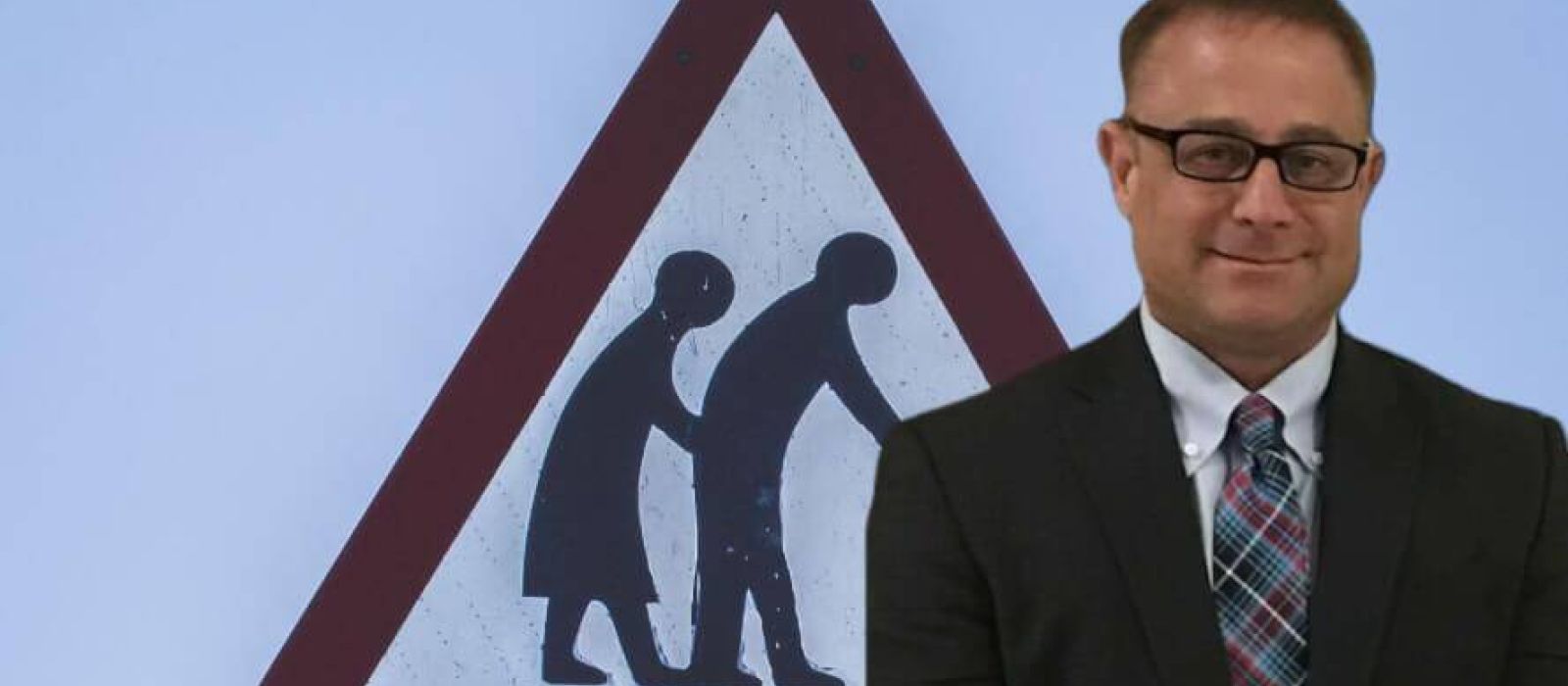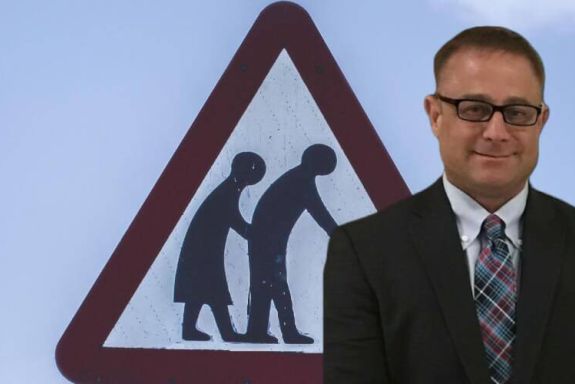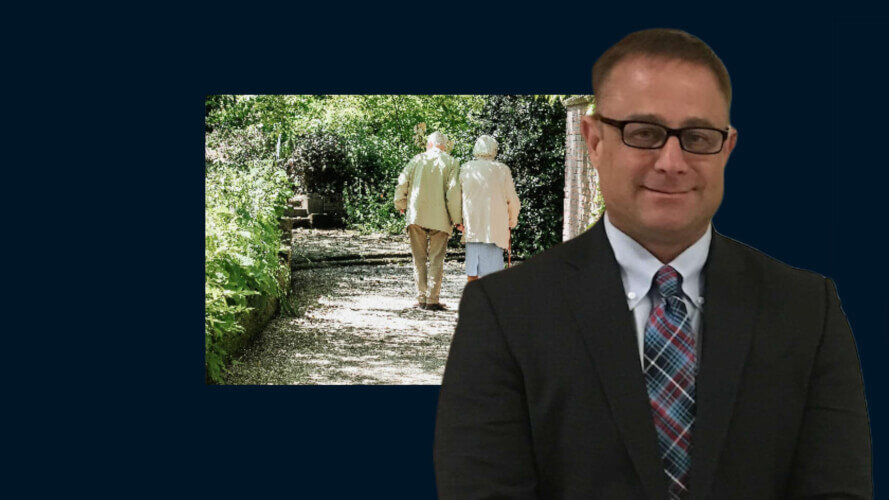

If we don’t win, you don’t pay.
NO WIN – NO FEE

ON CALL 24/7

U.S. Marine

Are you or someone you love a Los Angeles nursing home or elder abuse victim? Your family is the most important and tightest social unit, and your loved ones must be safe and secure in their physical and financial life. Perhaps your parents or grandparents are retired now and have the chance to live their retirement dreams to their fullest. (baby boomers?)
Sometimes, older family members become confined to senior or assisted living facilities run by so-called “caregivers” in big cities like Los Angeles, CA. In either case, your loved one’s personal security and keeping them free from becoming an elder abuse and nursing home negligence victim should be your number one concern over their well-being in your community.
The award-winning Los Angeles, CA, elder abuse lawyers at Ehline Law Offices have won clients millions of dollars. Peers and insurance companies recognize them as fierce personal injury practitioners throughout the State of California. Our lead nursing home neglect lawyer maintains local law office locations throughout Northern, Central, and Southern California to tackle these serious incidents in real-time.
We offer anyone hurt 24/7 concierge, and curbside service, including free legal advice for any victim in need of a free consultation or additional information about these mistreatment incidents. Here is everything victims of elder abuse must know about elder abuse cases and recovering money damages for a Los Angeles nursing home abuse, elder, or dependent adult claim under EADACPA. Nurses aren’t the only potential liable parties.
Read on and discover more about forming an attorney-client relationship and receiving an award of financial compensation. Elder abuse is a common phenomenon and not-so-new topic that can be solved in full. When families and other victims deal with safety and elder law issues, they have no excuse for failure to be proactive in their loved ones’ elder abuse matter.
The offspring of elders and their close families will face many common concerns over elder gullibility. Their advanced age causes them to fall for sneaky tricks used by evildoers/caregivers or gain friendships or various schemes to trick someone.
No matter your case, you’ll need a Los Angeles elder abuse advocate to help solve your problem.
- Elder abuse is a crime that should directly be called an immoral act as a form of nursing home abuse or home care neglect committed by so-called “caregivers.”
- Offenders are often both criminally and civilly liable.
- On the one hand, the District or City Attorney would prosecute and seek criminal reparations under the Penal Code.
A civil lawyer like Ehline seeks money damages paying abuse victims for civil elder law statute violations. If a caretaker hurt a senior, call Ehline’s top lawyers right now. Stand up for your rights.
Why Must You Hire Your Elder Abuse Attorney Immediately?
Legal experts recommend that you hire an experienced elder abuse attorney for your elder or nursing abuse case. Our older adults are vulnerable, and their bodies are not strong enough to take mental or bodily pains. Surviving families must understand that delaying action will cause death, making their cases completely different in form.
- Elder abuse remains different from other tort cases where you suffer from damages and know who caused the abuse damages or injury.
In these cases, your nursing abuse lawyer must carefully investigate signs of physical abuse against the Elderly Person:
- The person caring for the older person might deliberately or negligently hurt the abuse victims. When families face abuse allegations or evidence, signs, and symptoms are not obvious, so you must look for them. You wouldn’t know if your old parents’ caretaker was supervising them in your absence unless you had cameras installed in your house.
- An elder dependent who lacks supervision can walk out of their house and be run over by a vehicle, slip, trip, or fall on a sidewalk, or receive damage in another form.
- An experienced attorney will immediately seek evidence, looking for signs of elder abuse, continuously working to win you compensation for your loved one’s injuries.
At Ehline Law, we have seasoned and experienced attorneys old enough to understand the pain of being old. We sympathize with you, honestly representing your cases honestly as possible.
How Does The Los Angeles-Based Ehline Law Office Help Protect Senior Citizen From Physical and Financial Abuse?
Abuse of senior citizens in any way is a shame and a moral crime. If you know or suspect something untoward occurs to a vulnerable family member or loved one, ensure you have the proper Los Angeles-based attorney to deal with the situation.
Los Angeles elder abuse takes place in many forms, especially with dementia patients.
So you must take action if you see telltale signs of neglect and interned family members and spouses, such as:
- Bedsores and other infections (decubitus ulcers)
- Lack of hydration (aka dehydration)
- Multiple falling while walking accidents (fractures, brain injuries, etc.)
- Poor nutrition
- Sepsis
- Draining bank accounts.
Families can use various strategies and tactics to document and prove the abuse, including hidden cameras. Physical, sexual, and emotional abuse occur daily in California. Elder abuse happens all across the country, continuing. So be sure to protect your relatives, especially those above retirement age.
What Is Our Commitment To Suffering Families?
Ehline Law is proud to stand on its track record of assisting those in the most need.
- When elders above 65 become prey, these victims must retain the most experienced and aggressive advocates to assist their case.
- Above all, lawyers help victims receive just compensation, setting precedence in preventing harm to another future family.
Solutions may go beyond the courtroom, as our committed staff will exhaust all options to take care of your family– to see if there is money in SSI insurance or other ways to ensure that medical bills and other issues do not spiral out of control.
What Are Some Elder Abuse Spotting Methods?
Senior citizens face abuse in many ways, with these events remaining pretty standard around the country and Los Angeles.
We have provided a list to help you spot different elder abuse types:
- Neglect: You hire caretakers because they take the responsibility of providing full care to your loved one, a reason why you send your loved one to an elderly care facility. If duties remain unfulfilled, they need must be reprimanded.
- Financial Abuse: Older adults are not healthy physically, with inactive or weakened senses, making things like getting around difficult without assistance. For example, fraudsters may con older people to sign documents without showing them the original content or have them write checks they wouldn’t normally draft.
- Abandonment happens when caretakers leave their older adult patients alone or unsupervised, walking off a cliff of mental and physical elder abuse to be abused by a hospital or caretaker facility employee or even an attorney using bad faith tactics. (Stockholm Syndrome)
- Attorney Abuse: Attorneys of ill repute have convinced their elderly clients to sign documents and write stuff placing the elder’s properties and assets in those attorneys’ names – outright fraud (fabricated relationship based on lies).
- Physical Abuse: impatient and non-serious caretakers may become angry, beating seniors. Some money-hungry physicians may use tactics to hook your loved one on prescription drugs to make them more docile.
- Sexual Abuse: Abusers may have an abusive kink, sexually assaulting the elder without consent.
What Are Some Strange Things Classified As Elder Or Dependent Adult Abuse?
Whether you believe it or not, California state law considers many tactics and methods to be elderly or dependent adult abuse, including:
- Forcible seclusion (A terrible wrongdoing to lonely adults on their way out)
- Browbeating (caretaker relationship based upon fear and intimidation)
- Expropriation and embarrassment (Stripping elder abuse victims of their dignity).

How Can I Find Out More About My Elder Abuse Claims?
Elder abuse comes with many signs and symptoms mentioned above, abuse being physical, sexual, and financial. All areas you must look at to discover more about elder abuse causation in your elder abuse lawsuit.
Here are some things that, if noticed, are signs of a possible elder abuse case:
- When you see unusual activity in the elderly person’s bank account, like large, frequent withdrawals during short periods, are significant signs of elder financial abuse.
- Caretakers or friends seeking a “secret” loan are playing you, and if that happens, your family is being fooled.
- The caretaker responsible must handle the elder’s long-term medical expenses and bills (pay off credit cards, etc.). So if you see bills piling up from financial elder abuse, you must conduct identity theft and income checks and make sure no theft or fraud is occurring.
- This presents another red flag if the older adult lives in squalor despite making payments. (lack of fresh, running water, cell phone or family access, electricity or heating, etc.) You have a duty to ensure the elder’s guardian fully pays for amenities and living facilities.
- Suppose you notice the older person has undergone extreme weight loss, received bedsores on their backside or buttocks skin, or long-term, prominent body coloring. In that case, you now have evidence of potential beating and application of improper care. You must follow steps to protect the older adult and speak to a Los Angeles, California, injury lawyer before more harm or another negative health condition occurs. When abused elderly people immediately hire competent legal assistance, half their legal battle is won against negligent healthcare facilities (nursing homes), in-home nurses, and abusive lawyers with power of attorney.
-
- Elder Malnutrition
- Elderly Dehydration Symptoms
- Understanding Elder Isolation and Worse
- Elder Abuse Defenses
- Elder Nursing Homes and Dependent Care Regulations
- California Policy to Protect the Elderly and Dependents
- Rights of Elders
- SSI Disability
- Elderly & Nursing Home Wrongful Death
- Preventing Financial Elder Abuse.
Many people want to confront offenders physically, but being emotional like this could mate matters worse, causing them to land in jail or kill them. You must not handle an elder abuse case by yourself, especially if you are not a lawyer. And you can’t sleep on your rights while figuring out your next steps after suffering physical harm and emotional distress.
Why Is Ehline The Best Elder Abuse Law Firm Option For Your Case?
We at Ehline Law help settle elder abuse victims with cases in a variety of situations and fast. Our passion for our profession and justice makes us a relentless team to beat. It doesn’t matter to us whether we are standing against an offending person or an entire corporation; we fight with a passion for making sure we win it for you and do all the investigative research to nail down the winning evidence on behalf of the elder abuse victims and their loved ones.
-
Millions Recovered for Injury Victims
Ehline Law professionals have always been helpful to clients, so they never approach us with hesitation. Your family should put our vast, winning experience to use, so you can win the settlement you deserve for severe injuries, wrongful death, and financial elder abuse of a senior citizen.
Our team of L.A. injury lawyers knows Los Angeles and the laws that prevail in this region. We know how to litigate and settle personal injury cases, with more than 30 years of experience and over $100 Million in successful, proven results. You must receive maximum compensation to pay for this travesty, and a Los Angeles elder abuse attorney from our offices will help you get that money.
Schedule A Free Consultation With Los Angeles Elder Abuse Attorneys Today
When you hire our superb, dedicated Los Angeles elder abuse lawyers, your claim will be positioned best to achieve overwhelming justice. Our legal team will discuss your options against healthcare facilities and others during your free case review, helping guide your path away from this unwarranted nightmare of physical and emotional harm, financial elder abuse, neglect, or medical malpractice. Some abuse may lead to a wrongful death!
Our best Los Angeles elder abuse attorney can help end unfair, abusive patronization by assisted living facilities and their employees. Some abuse victims may require expensive, long-term care. Elder abuse victims should use our online contact form to receive free legal advice. Our best Los Angeles elder abuse attorney created a 24-hour, seven-day-a-week attorney hotline so any victim can report pernicious long-term care facilities and their criminal employees.
We stand ready to assist with top-flight legal representation from our elder abuse attorneys on behalf of your family members or yourself. Receive your free legal consultation today! Victims can also call us at (213) 596-9642 and speak with a victim’s elder abuse lawyer today about elder abuse neglect. You can also fill out our website form if you can’t pick up the phone, and you can do so 24/7. We can also provide you with a prompt virtual consultation for your convenience.

